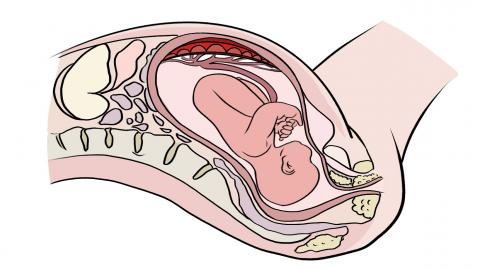What should be done if pregnancy occurs again due to not using contraception after a miscarriage?
Generally, if pregnancy occurs again due to not using contraception after a miscarriage, considerations may include evaluating physical condition and pregnancy risks, considering termination of pregnancy, choosing to continue the pregnancy with enhanced prenatal examinations, implementing measures to preserve the pregnancy, and treating underlying diseases. If experiencing any discomfort, timely medical consultation is recommended. Detailed analysis is as follows:

1. Evaluate Physical Condition and Pregnancy Risks
Firstly, immediate medical consultation is necessary to undergo comprehensive physical examinations, including gynecological exams, ultrasound scans, blood tests, etc., to assess physical condition and pregnancy risks. Doctors will provide professional advice based on the examination results.
2. Consider Termination of Pregnancy
If the previous miscarriage hasn't healed properly, or if this pregnancy poses risks such as abnormal embryonic development or poor maternal health, termination of pregnancy may be considered. However, consecutive miscarriages may harm the body, so decisions should be made under a doctor's guidance.
3. Choose to Continue the Pregnancy and Enhance Prenatal Examinations
If recovery after the previous miscarriage is satisfactory and there are no other risk factors in this pregnancy, continuing the pregnancy can be considered. However, prenatal examinations should be intensified to closely monitor fetal development and maternal health. Regular prenatal checkups can detect potential problems early and allow timely interventions.
4. Implement Measures to Preserve the Pregnancy
For women who wish to continue their pregnancy, measures such as bed rest, supplementing folic acid and other nutrients, avoiding strenuous activities and sexual intercourse can be adopted. These measures help reduce the risk of miscarriage and ensure maternal and fetal health.
5. Treat Underlying Diseases
If women who become pregnant again due to not using contraception after a miscarriage suffer from underlying conditions such as endometritis or salpingitis, treatment should be conducted under a doctor's guidance. These conditions may affect conception and embryonic development, and timely treatment can reduce associated risks.
In daily life, awareness of contraception should be strengthened. Women who have experienced a miscarriage must adopt reliable contraceptive methods and use them correctly when resuming sexual activity to avoid the risk of another pregnancy. Regular gynecological examinations should also be carried out to detect and treat gynecological inflammations promptly, thus reducing the risk of subsequent pregnancies.




